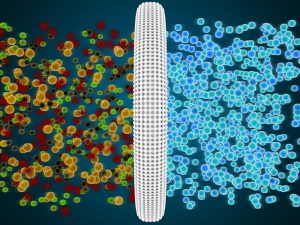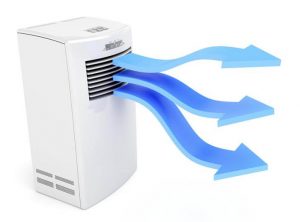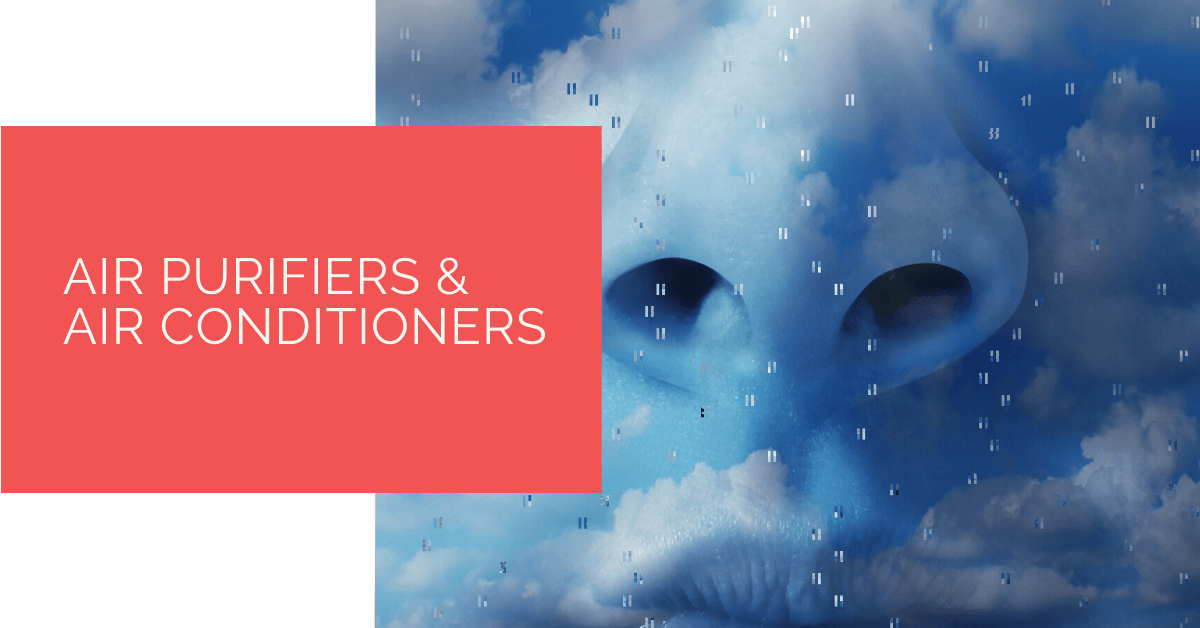The demand for air conditioning is rising due to various things including the changes in the climate. This isn’t just happening in the UK, but all over the rest of Europe. Likewise, the increase in pollution is having a lot of residents looking for ways to improve their indoor air quality.
If you are looking to invest in air conditioning yourself, you may be confused at some of the options available. After all, there are air conditioning specific units as well as air purifiers. Knowing the difference between the two can help you identify the right unit to purchase for your home.
We have also compiled a list and reviewed the best portable air conditioners and air purifiers to compare the best available.
Contents
- 1 Key Takeaways
- 2 What Is the Difference Between an Air Purifier and an Air Conditioner?
- 3 Do I Need an Air Purifier or an Air Conditioner?
- 4 Are Air Purifiers Capable of Cooling the Air?
- 5 Can You Use An Air Purifier and Air Conditioner At The Same Time?
- 6 Heat Pump Source: Reliable Heating and Cooling Solutions
- 7 Conclusion
Key Takeaways
- An air purifier is designed to improve indoor air quality by filtering out contaminants and particles, making it suitable for those with respiratory issues, humid homes, or pet odours.
- An air conditioner’s main function is to cool the air and reduce humidity levels, making it ideal for hot and humid environments and improving air quality to a limited extent.
- To achieve improved air quality and cooling, it’s advisable to use an air purifier and an air conditioner simultaneously, as they serve different purposes.
What Is the Difference Between an Air Purifier and an Air Conditioner?
Air Purifiers
 An air purifier’s primary function is to improve the quality of air in your home. It accomplishes this by effectively filtering out airborne contaminants and particles that can contribute to worsening air conditions and even cause respiratory problems in those with specific health issues.
An air purifier’s primary function is to improve the quality of air in your home. It accomplishes this by effectively filtering out airborne contaminants and particles that can contribute to worsening air conditions and even cause respiratory problems in those with specific health issues.
Air purifiers typically utilise either a HEPA filter or an ioniser to filter the air effectively.
A HEPA system is designed for filtering air and getting rid of the various particles or contaminants that reduce air quality. Some may even have an activated charcoal filtration system which can help to decrease odours permeating throughout the home. Activated charcoal is very good at getting rid of pesky odours stemming from anything, including mould to smoke and even pets.
An ioniser based system is designed to output charged ions into the air which effectively attach to the undesired air particles to weigh them down and get them to drop to the ground.
Air Conditioners
 Air conditioners, on the other hand, are meant to produce cool air effectively. This helps to decrease the ambient temperature in a room or home. These systems work by drawing in hot air and throwing that air outdoors and by replacing it with cooled air.
Air conditioners, on the other hand, are meant to produce cool air effectively. This helps to decrease the ambient temperature in a room or home. These systems work by drawing in hot air and throwing that air outdoors and by replacing it with cooled air.
This system is not only capable of helping to produce cooler air which can decrease ambient temperatures, but it can also dramatically reduce humidity levels throughout your home.
You can find air conditioner units in various styles ranging from whole house systems to window units and even portable units.
Air conditioner systems are typically equipped with some basic filtration functions that can help it clean the air and improve air quality in the home.
However, the filtration that you are going to get out of an air conditioning system is not going to be anywhere close to what you would be able to get from an air purifier. The air filters are simply not equipped to get rid of the microscopic particles that you would be able to trap with a dedicated purifier.
Do I Need an Air Purifier or an Air Conditioner?
This should be a relatively easy decision. After all, the two systems have completely difference use-cases. As a result, you should be able to differentiate which one is going to fit your specific use-case criteria the best. Below, we will discuss who should be getting each system.
You should get an air purifier if:
- You want a system that is primarily intended to improve the air quality in your home.
- You have people living in your home with respiratory problems including but not limited to asthma or severe allergies to pollen.
- You have a very humid home that is conducive to mould growth and odours.
- You don’t need the air in your home cooled.
- You have pets and you want to get rid of musky pet odour or pet dander.
You should get an air conditioner if:
- Your home’s air is too hot and or too humid, and you need it to be cooled down.
- You have trouble sleeping at night because your home’s ambient temperature isn’t conducive to quality sleep.
- You are looking to minimise the humidity levels throughout your home.
- You want both air cooling and limited purifying function.
Are Air Purifiers Capable of Cooling the Air?
 You are not going to be able to get cooling functionality with a purifier. As the name suggests, it is purely to purify the air. Therefore, you shouldn’t go into the shopping process looking for a purifier that is going to be capable of acting as an air conditioner. However, on the other hand, you can find an air conditioner that offers air-purifying functionality. However, there are limitations, and you shouldn’t expect equal performance from it.
You are not going to be able to get cooling functionality with a purifier. As the name suggests, it is purely to purify the air. Therefore, you shouldn’t go into the shopping process looking for a purifier that is going to be capable of acting as an air conditioner. However, on the other hand, you can find an air conditioner that offers air-purifying functionality. However, there are limitations, and you shouldn’t expect equal performance from it.
Can You Use An Air Purifier and Air Conditioner At The Same Time?
This is generally what you want to do if you are looking to get the best results from each system. Each system is designed to do one specific thing. Trying to find a system that is going to do both functions equally is not what you should be doing. Instead, if you want your air quality improved and you want cooler and less humid air throughout your home, you should be looking to get both systems and use them simultaneously.
Heat Pump Source: Reliable Heating and Cooling Solutions
At Heat Pump Source, we take pride in our unwavering commitment to serving the UK with top-tier HVAC solutions. From the efficiency of heat pumps and the cool relief of air conditioning to the warmth of boilers, radiators, and underfloor heating, our dedicated team is always at the forefront of innovation. We understand the unique needs of every household and business, and we strive to provide dependable health and cooling products and services that are tailored just for you. Ensuring your comfort and satisfaction is our utmost priority. Whether you have questions, need guidance, or require support, we’re always here to assist. Please don’t hesitate to contact us; we’re eager to be of service.
Conclusion
The bottom line is, you need to figure out what your intentions are and what you need from the system you are buying. If you fall in between, you should be opting for both systems. If you fall on either one of the sides of the spectrum, you should be able to pinpoint the right system for your use-case.
About the Author
At Heat Pump Source, our articles are the product of a collaborative effort among a team of highly skilled HVAC experts. Our dedicated professionals, hailing from diverse backgrounds in heating, ventilation, air conditioning, and refrigeration, contribute their extensive knowledge and experience to every piece of content. This multidisciplinary approach ensures comprehensive coverage. Our commitment is to deliver authoritative, reliable, and tailored advice to meet the unique needs of every household and business across the UK.

